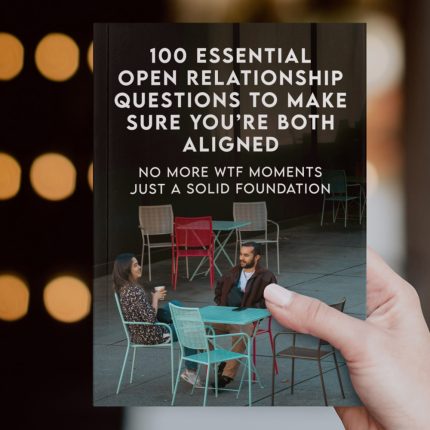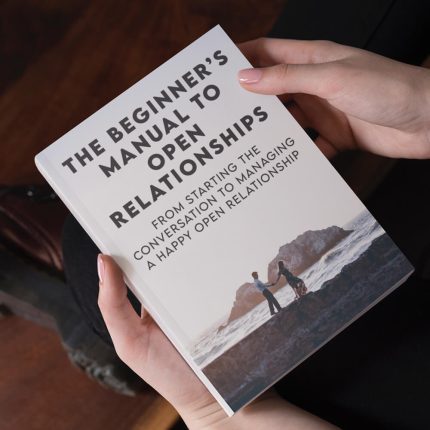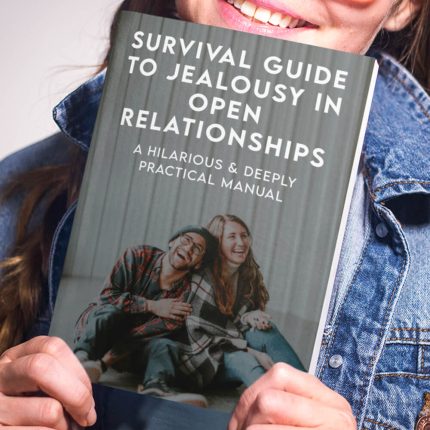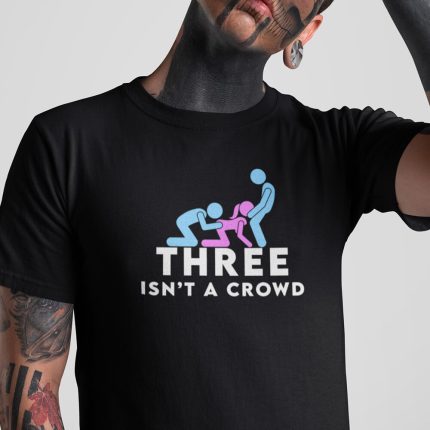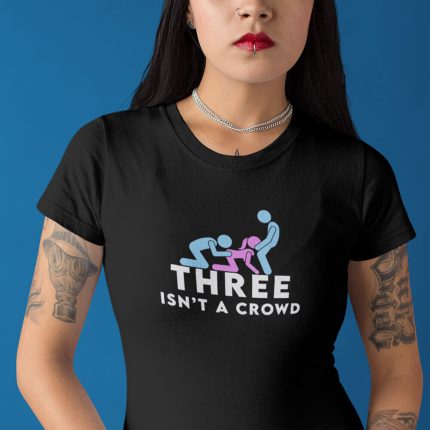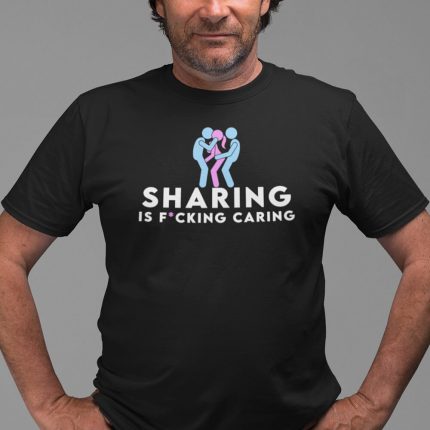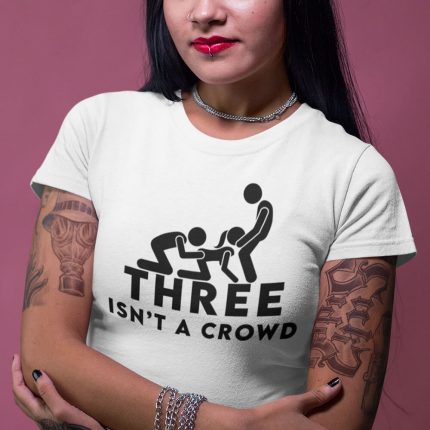Welcome, adventurous hearts and relationship revolutionaries! If you’ve ever thought that love shouldn’t be a one-note symphony but rather a vibrant, multi-instrument jam session—while still keeping it respectful and drama-free—then you’re in the right place. This ultimate playbook on ethical non-monogamy is your backstage pass to a world where honesty, consent, and clear communication turn the chaos of multiple connections into a harmonious masterpiece. Useful Interruption: Not sure which relationship vibe fits you best? Take our Relationship Test, it’ll give you the real insight into your natural relationship style. Then, dive into our binge-worthy guides (from the tried-and-true to the “wait, that’s a thing?”) and find the perfect relationship type for your life: Now back to the main article but yeah take the test...
Understanding Ethical Non-Monogamy
What Is Ethical Non-Monogamy?
At its core, ethical non-monogamy (ENM) is all about engaging in multiple consensual and transparent relationships, all while keeping the rules of respect and communication in the spotlight. It’s the art of saying “yes” to more than one connection without resorting to secrecy or deceit. Instead of sneaking around, everyone involved is on the same page—like a perfectly choreographed flash mob where every move is planned and appreciated.
This approach isn’t just about having more options—it’s about creating deeper, more honest connections by challenging the conventional “one love fits all” idea. Keywords such as ethical non-monogamy, consensual non-monogamy, and open communication are the guiding lights in this vibrant relationship model.
History & Cultural Shifts
Believe it or not, non-monogamous practices aren’t just a modern invention. Cultures across the globe and throughout history have experimented with various forms of non-monogamy—from the open love of ancient Rome to the communal bonds of some indigenous societies. What’s changed in recent decades is the emphasis on ethics, consent, and clear communication.
The sexual revolution, feminist movements, and the rise of LGBTQ+ rights have all contributed to a broader understanding that love doesn’t have to be limited to one person. Today, ethical non-monogamy is seen as a progressive alternative that embraces individual freedom while maintaining a commitment to honesty and respect.
Models of Ethical Non-Monogamy: Choose Your Own Adventure
Open Relationships
Open relationships are a popular form of ENM where partners agree that emotional or sexual connections with others are welcome—so long as everyone knows what’s happening. It’s like having a relationship buffet: you can sample a little bit of everything while still enjoying your main course.
Polyamory
Polyamory takes it a step further by emphasizing multiple loving, romantic connections at the same time. In a polyamorous setup, each relationship is nurtured with care, and emotional intimacy is a key ingredient. It’s like hosting an ensemble cast of characters in your life, each bringing their own unique flair to the story.
Swinging
Swinging is often more about sexual exploration than deep emotional bonds. Couples who swing usually do so together, embracing a playful and experimental approach to their intimate lives. While it’s less about long-term romance, swinging still falls under the umbrella of ethical non-monogamy when practiced with transparency and mutual consent.
Hybrid Models
Many modern relationships don’t fit neatly into one category. Hybrid models mix elements of open relationships, polyamory, and swinging to create a personalized blueprint for love. The key is that every connection is built on a foundation of ethical practices and clear communication.
Communication and Boundaries: The Golden Rules
Effective Communication Strategies
In ethical non-monogamy, communication isn’t just important—it’s the lifeblood of every connection. Think of it as the backstage pass that lets everyone in on the plan. Whether you’re coordinating date nights or discussing emotional needs, clear and honest dialogue ensures that every voice is heard.
- Schedule Regular Check-Ins: Set aside time to talk about your feelings, expectations, and any adjustments needed. Consider it a weekly relationship tune-up.
- Use “I” Statements: Keep conversations non-confrontational. For example, “I feel…” rather than “You never…” helps keep things positive.
- Embrace Humor: Sometimes, laughing together about the absurdity of love can break down walls and build trust.
Setting Clear Boundaries
Boundaries are the invisible guidelines that keep relationships running smoothly. In the realm of ethical non-monogamy, boundaries are not restrictive rules but rather agreements that protect everyone’s emotional well-being.
- Discuss Expectations Early: Don’t wait for confusion to set in. Outline what’s acceptable and what isn’t from the start.
- Be Specific: Vague boundaries lead to misunderstandings. Be as detailed as possible about your needs and limits.
- Revisit Regularly: As relationships evolve, so should your boundaries. Regular check-ins help keep everything up-to-date.
EXPLORE OUR ETHICAL NON-MONOGAMY & OPEN RELATIONSHIP SHOP
👨💻👩💻 Digital Store (Instant Download)
🍆💦 Clothing Store (Worldwide Delivery Available)
Three Isn't a Crowd Unisex T-Shirt (Black)
$29.99Real Men Share Pop Art T-Shirt (White)
$29.99Real Men Share Pop Art T-Shirt (Black)
$29.99Sharing Is Caring Unisex T-Shirt (Black)
$29.99Multiple Lovers - Sharing Is Caring Unisex T-Shirt (Black)
$29.99It's Not Cheating If He Watches T-Shirt (Black)
$29.99Sharing Is Caring Daddy Cap (Black)
$39.99I Love Watching Pop Art T-Shirt (Black)
$29.99Fuck Each Other Not The Planet Unisex T-Shirt (Black)
$29.99I Love Watching Pop Art T-Shirt (White)
$29.99Three Isn't a Crowd Unisex T-Shirt (White)
$29.99Fuck Each Other Not The Planet Unisex T-Shirt (White)
$29.99Consent and Ethics: The Cornerstones of ENM
Ongoing, Enthusiastic Consent
In ethical non-monogamy, consent is not a one-and-done deal—it’s an ongoing conversation. Every new connection and every shift in a relationship requires clear, enthusiastic, and informed consent. Think of it as the ultimate relationship contract that gets renewed regularly.
Transparency about your desires, limits, and any changes is essential to building a secure and supportive network of connections.
Maintaining Ethical Standards
Ethical non-monogamy is all about doing love the right way. That means treating every partner with respect, being honest about your feelings, and ensuring that everyone is on board with the arrangement. This ethical framework distinguishes ENM from less conscientious forms of non-monogamy.
By committing to open communication and regular check-ins, you create an environment where trust can flourish and every relationship is nurtured with care.
Emotional and Psychological Benefits of ENM
Personal Growth and Deeper Connections
One of the most rewarding aspects of ethical non-monogamy is the potential for profound personal growth. Engaging with multiple partners can broaden your perspective, challenge your assumptions, and help you learn more about yourself.
Many people find that ENM encourages them to develop greater empathy, self-awareness, and emotional resilience. The ability to navigate complex emotional landscapes often leads to stronger, more fulfilling connections with both current and new partners.
The Power of Diverse Perspectives
With ethical non-monogamy, you get to experience love from different angles. Each partner brings unique insights, experiences, and ways of understanding the world. This diversity can enrich your life, spark creativity, and even help you solve problems you never knew existed.
In essence, ethical non-monogamy isn’t just about having more love—it’s about deepening the quality of your emotional life.
Challenges and How to Overcome Them
Jealousy, Insecurity, and Social Stigma
Let’s be honest: navigating multiple relationships can sometimes stir up feelings of jealousy or insecurity. Even the most confident among us have moments when we wonder if we’re doing it all right.
The trick is to address these feelings head-on. Regular, honest conversations with your partners can help alleviate insecurities. And remember: a little jealousy is natural, but it doesn’t have to derail your journey.
- Self-Reflection: Take time to understand the root of your emotions—journaling can be a great tool here.
- Open Dialogue: Discuss your feelings with your partners in a non-judgmental setting. This openness can transform jealousy into an opportunity for deeper connection.
- Find Humor in the Chaos: Sometimes, a well-timed joke can defuse tension and remind everyone that you’re all in this together.
Managing External Judgments
Society isn’t always kind to non-traditional relationship models. You might face skepticism, misunderstanding, or even outright criticism from friends, family, or colleagues.
The best defense is a strong sense of self and a supportive community. Surround yourself with people who respect your choices, and don’t be afraid to educate others about the principles of ethical non-monogamy.
Practical Tips and Real-Life Stories
Tips for Transitioning into Ethical Non-Monogamy
Thinking about diving into ethical non-monogamy? Here are some practical tips to help you ease into this exciting lifestyle:
- Do Your Research: Read books, listen to podcasts, and explore online forums dedicated to ENM. Knowledge is power—and it makes for great conversation starters!
- Start Small: Experiment with minor adjustments in your current relationship before expanding. Try scheduling a “non-monogamy trial period” where you explore new connections with clear boundaries.
- Communicate Openly: Set aside time for honest discussions about your feelings, expectations, and any challenges that arise.
- Seek Support: Connect with communities or professionals who specialize in ethical non-monogamy. Sometimes, a little guidance can make all the difference.
- Keep It Light: Remember that humor is a powerful tool—laugh at the absurdities, celebrate the wins, and don’t sweat the small stuff.
Real-Life Adventures: Lessons Learned the Hard (and Hilarious) Way
Every journey into ethical non-monogamy is unique, but here are a few real-life anecdotes to inspire you:
- The Accidental Polyamory: Jamie started off exploring ENM casually and soon discovered that what began as a fun experiment evolved into a network of meaningful connections. After some awkward missteps (and a lot of laughter), Jamie now credits open, honest conversations for turning potential chaos into a tapestry of supportive relationships.
- The “Green-Eyed Monster” Tamed: Alex faced bouts of jealousy when a new partner entered the scene. Instead of bottling it up, Alex and their partners held a “feelings forum” complete with snacks, honest confessions, and even a funny “jealousy jar” to celebrate moments of vulnerability. The result? A stronger, more resilient bond and plenty of memorable inside jokes.
FAQ: Your Ethical Non-Monogamy Questions Answered with Honesty and Humor
1. What is ethical non-monogamy?
Ethical non-monogamy is a relationship model in which all parties engage in multiple romantic or sexual connections with full knowledge, consent, and respect for everyone involved.
2. How is ethical non-monogamy different from cheating?
The key difference is transparency and consent. In ENM, everyone is aware of and agrees to the arrangement—no secrets, no sneaking around.
3. What are the most common forms of ethical non-monogamy?
Common forms include open relationships, polyamory, and swinging. Each has its unique flavor, but all prioritize ethical behavior and clear communication.
4. How do I know if ethical non-monogamy is right for me?
Reflect on your values, desires, and relationship goals. If you crave multiple connections but insist on honesty and consent, ENM might be your perfect match.
5. How do I start a conversation about ENM with my partner?
Begin with openness and curiosity. Share your thoughts and listen actively. It might help to start with, “I’ve been reading about ethical non-monogamy and I’m curious about exploring it—what do you think?”
6. What if my partner isn’t interested in ENM?
Not everyone will be on board, and that’s okay. Honest discussions and mutual respect are crucial. Sometimes, people need time to process new ideas, and that’s perfectly normal.
7. How can I manage jealousy in an ENM setup?
Address jealousy through open communication, self-reflection, and a good dose of humor. Acknowledge your feelings, discuss them with your partners, and work together to find solutions.
8. Can ethical non-monogamy lead to long-term, fulfilling relationships?
Absolutely! Many people find that ENM deepens their emotional connections, enhances personal growth, and leads to more fulfilling relationships when practiced with honesty and care.
9. What challenges should I expect with ENM?
Common challenges include navigating jealousy, maintaining clear boundaries, and managing external judgments. Regular check-ins and a supportive community can help you overcome these hurdles.
10. Where can I find support and resources for ethical non-monogamy?
Look for books, podcasts, online forums, and local meetups dedicated to ENM. Resources like “The Ethical Slut,” polyamory blogs, and supportive social media groups can provide practical advice and a sense of community.
Resources and Community Support: Your Guide to Thriving in ENM
Top Books, Podcasts, and Blogs
Whether you’re just starting out or you’re deep into the world of ethical non-monogamy, these resources will equip you with wisdom, practical tips, and plenty of laughs:
- "The Ethical Slut" by Dossie Easton & Janet Hardy – A groundbreaking guide to living and loving openly and ethically.
- Podcasts: “Multiamory” and “The Polyamory Podcast” offer insightful discussions, real-life stories, and expert advice on ENM.
- Blogs & Online Communities: Explore forums on Reddit (e.g., r/polyamory) and join dedicated Facebook groups where you can swap stories and advice.
Finding Professional Guidance and Peer Networks
Sometimes, having a little extra help can make all the difference. Consider seeking out a therapist or counselor who specializes in non-monogamous relationships. In addition, joining peer networks—both online and in-person—can offer you a supportive space to share your experiences, celebrate your successes, and navigate challenges together.
Remember, every journey in ethical non-monogamy is unique. With the right blend of honesty, communication, and humor, you can create a fulfilling and authentic love life that’s tailored to you.

